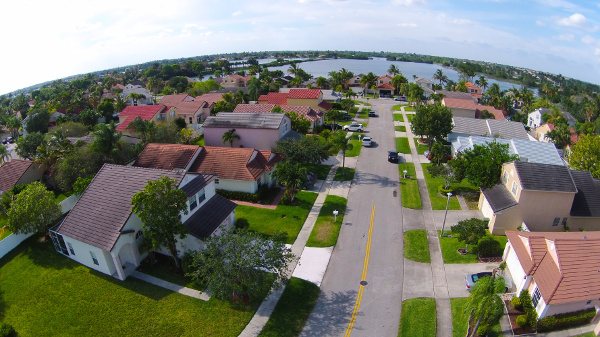3 Closing Costs That Most Buyers Forget to Factor in and What You Can Expect to Pay
 If you’re in the process of buying a home, you probably have your deposit and monthly mortgage charges in a spreadsheet, along with a chart of your other expenses and your monthly income. But when it comes to buying a home, there are lots of different costs that will come into play – and it’s easy to forget something. When you’re preparing to close on your new home, make sure you consider these three closing costs that most buyers forget.
If you’re in the process of buying a home, you probably have your deposit and monthly mortgage charges in a spreadsheet, along with a chart of your other expenses and your monthly income. But when it comes to buying a home, there are lots of different costs that will come into play – and it’s easy to forget something. When you’re preparing to close on your new home, make sure you consider these three closing costs that most buyers forget.
Home Inspection Fees: A Small Charge For Peace Of Mind
Most home purchase agreements are contingent upon a successful home inspection – and if you’re planning to buy a home, you should definitely have it inspected before you buy it. However, home inspectors don’t work for free, and you’ll have to pay a home inspector for a thorough evaluation of the premises.
Home inspection fees depend on the kind of property you’re buying, and can vary depending on your location. For a condo unit, you will typically only need to pay about $250, but a single-family home might cost up to $500. Luxury properties are often more expensive, sometimes even running as high as $1,500.
Private Mortgage Insurance: Obligatory With Small Down Payments
If you’re only planning to make the minimum down payment on your home, you’ll need to buy mortgage insurance. Mortgage insurance protects the lender in the event that you default on your loan. This is an added cost that your lender pays, and in general, almost every lender will pass the cost on to you.
You can pay for your mortgage insurance in one large payment, or you can add it to your monthly mortgage payments. Note that if your down payment is less than 20% of the purchase price, you’re legally required to buy mortgage insurance.
Lender Fees: Additional Fees to Process Your Mortgage
One category of closing costs that buyers often forget is lender fees. Lender fees are fees that your mortgage lender will charge for processing the transaction of the loan. These can include appraisal fees, credit report fees, processing and application fees, and administration fees for underwriting.
These fees can range depending on the lender, but in many cases they exceed $3,000. You’ll want to budget about $3,500 to $5,000 to be safe.
Buying a house is a major undertaking, and there are lots of ways that the process could go awry. But a good mortgage professional can help you navigate the process and get the home and the mortgage you’ve always wanted without any issues. Contact your trusted mortgage expert to learn more.
 Savvy home buyers who are preparing to make a real estate purchase should do their research and understand that they need to save money for not only the down payment, but the closing costs as well. The closing costs can account for as much as three to five percent of the sales price in some cases, so this can be a rather sizable amount of money. Some home buyers however, may not realize that the amount of closing costs can vary considerably based on the home that is purchased. With a closer look at why this is, home buyers can make a more educated decision when selecting a home to purchase.
Savvy home buyers who are preparing to make a real estate purchase should do their research and understand that they need to save money for not only the down payment, but the closing costs as well. The closing costs can account for as much as three to five percent of the sales price in some cases, so this can be a rather sizable amount of money. Some home buyers however, may not realize that the amount of closing costs can vary considerably based on the home that is purchased. With a closer look at why this is, home buyers can make a more educated decision when selecting a home to purchase. From finding the right agent to discovering the home you can truly feel comfortable in, there are a variety of things involved in the home buying process. However, it’s important not to get caught up in the home and ignore altogether the community you’ll be living in. If you’re planning a move to a new neighborhood, here are some things you should look into before putting in an offer.
From finding the right agent to discovering the home you can truly feel comfortable in, there are a variety of things involved in the home buying process. However, it’s important not to get caught up in the home and ignore altogether the community you’ll be living in. If you’re planning a move to a new neighborhood, here are some things you should look into before putting in an offer.